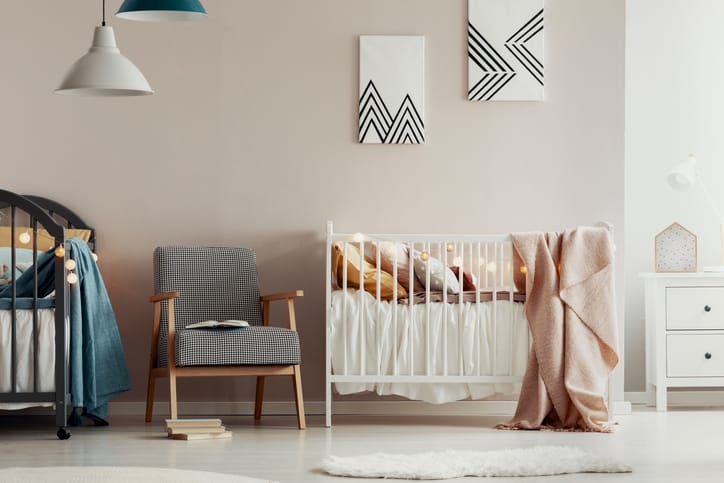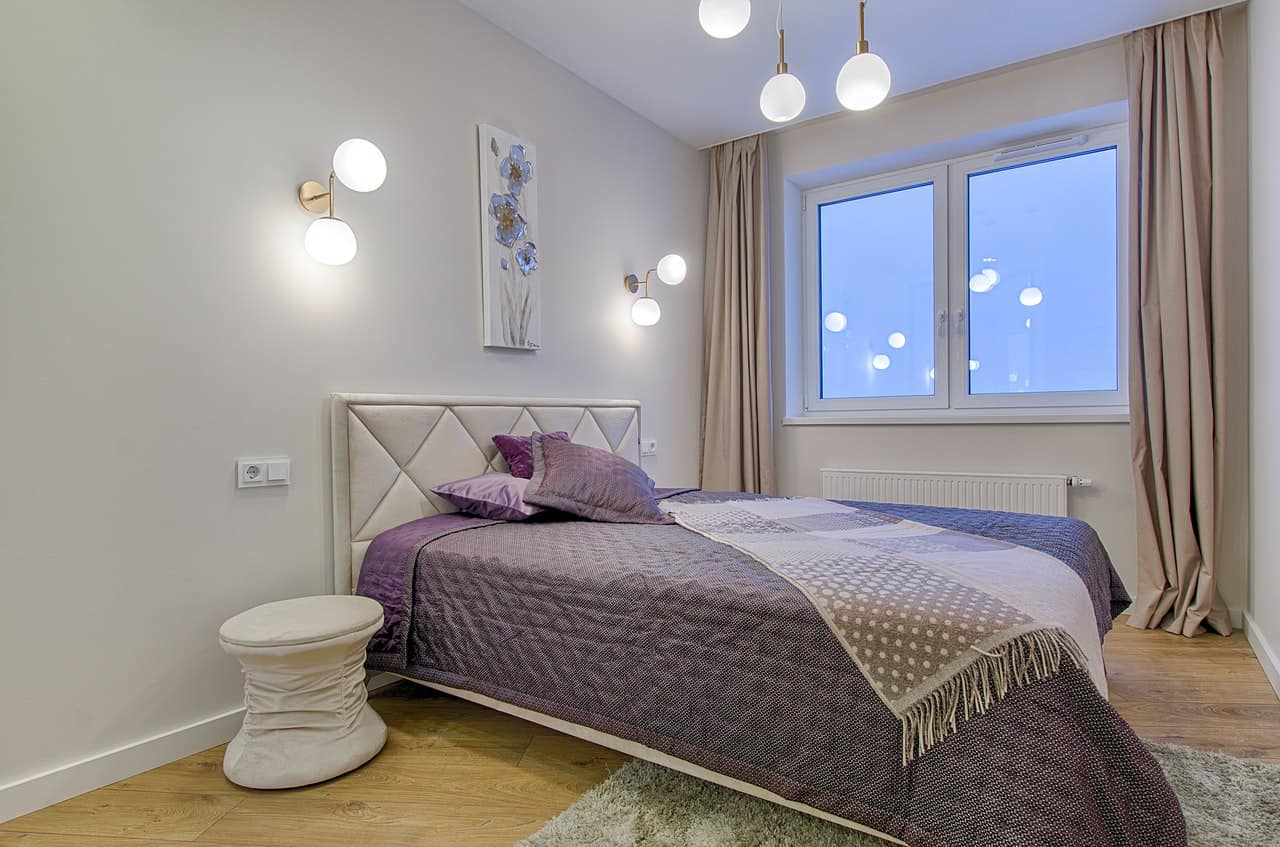Are you seeking an apartment to settle in and wondering how many occupants can occupy a two bedroom apartment? As a tenant, you should ensure that you rent enough space for your family.
On the other hand, a landlord needs to be aware of the number of people living in a 2-bedroom apartment, as per the law. According to the Fair Housing Act, at least four people can stay in a 2-bedroom apartment at a time.
In this article, we’ll explain in detail the number of people that are supposed to live in a 2-bedroom apartment.
How Many People Can Live in a 2-Bedroom Apartment?
As just stated, at least four people can stay in a 2-bedroom apartment at a time. However, there are many unanswered questions that we’ll answer below:
Standards by the Federal Government
You might be wondering whether the federal government sets any occupancy limit standards. The truth is that such standards do exist and are meant to protect the real estate industry.
The Federal Department of Housing and Urban Development came up with the Federal Fair Housing Act, which places an occupancy limitation of two people per bedroom in a rented apartment.
It, therefore, means that the federal recommendation for a 2-bedroom apartment is up to four people. These recommendations are based on the safety of the rental property and the occupants.
The occupancy limit guarantees that all tenants live in the 2-bedroom apartment safely and that the apartment doesn’t face any threats of physical damages.
If a 2-bedroom apartment becomes overcrowded with tenants, there is a high risk of fire hazards and accidents. It will be difficult for all the apartment occupants to exit the unit safely in case of an emergency.
When people are crowded in a 2-bedroom apartment, there is more belongings and stuff. More energy and water will also be consumed in the process.
If your rent includes utilities and is calculated with the number of occupants in mind, increasing the number of people can cause trouble with the landlord. The apartment will also experience more wear and tear at a faster pace, translating into more money incurred in maintenance costs.
Therefore, it would help to have the exact number of occupants in mind while choosing an apartment. Ideally, you should not allow more than four people to occupy a 2-bedroom apartment.
Why Occupancy Limits Vary
Several factors determine the limit of the occupants of a 2-bedroom apartment. For instance, most senior living communities have age requirements for residents.
Senior living community residents are required to be at least 55 years old. Their occupancy is normally lower since they aren’t required to let children live in the rental units.
You also may get specific occupancy limit rules in some local areas and cities.
For instance, a property manager can allow a ‘two plus one’ policy. The policy allows an extra person per bedroom in a dwelling unit. The plus one leniency is there to allow tenants with large families.
According to the Fair Housing Act, familial status is a protected housing class. Therefore, it’s against the rules for landlords to deny families with children as tenants.
The act requires landlords to allow family members to stay together as much as possible. This flexibility should be allowed even for very strict policies and rules for 2-bedroom apartments.
With so many rules and regulations available, you must check with the apartment building management and potential landlord for the maximum number of occupants allowed in the 2-bedroom apartment unit.
How are Guests Different from Occupants?
If a person lives in your apartment and isn’t on a lease, there will be a limit to the period of time they can live with you. It’ll be considered a lease violation if you fail to mention a long-term co-resident in the lease.
Even though it’s okay for people to visit for a night or two, they’ll be considered tenants if they stay for a prolonged period. In most cases, the landlord starts counting towards the occupancy after the visitors cross the one-week residency period.
If you intend to have someone stay in your apartment for a long period, it will help to let your landlord or property manager know. Ensure you go through the lease keenly to understand the lease regulations about guests, persons related, and new tenants.
Obtaining the rules in advance will prevent you from getting into trouble with your landlord. You’ll avoid a complaint getting filed against you.
How the Occupancy Limitations are Implemented
Implementation of capacity limitation has proven to be very challenging, especially during the tenant screening process. Some landlords discriminate ‘softly’ in the lease agreement when the number of members in a household is brought to discussion.
The number of occupants in a rented property is established during the signing of the lease. For instance, the lease might only let the occupants listed to stay with you for a prolonged period.
After that, it’s up to the property manager’s discretion to either add or not add additional occupants to the lease, however this won’t apply to children. The Fair Housing Act requires landlords to offer flexibility to families.
The maximum occupancy challenge presents itself when you have an extended house guest or an additional roommate. In some instances, landlords take advantage of the situation and allow a maximum number of occupants on the lease to get maximum monthly rent.
For instance, allowing three roommates in a 1-bedroom unit enables landlords to get more rent compared to leasing the unit to one occupant. These are typically known as ‘additional occupancy fees.”
Can Landlords Limit the Number of Occupants?
A property can limit the number of occupants in their rental unit as long as they’re within the state, local housing, and federal laws. As per the Fair Housing Act, a landlord is required to allow at least two people per bedroom, unless it’s justifiable to have a larger number.
It’s very hard for a landlord to get around the Fair Housing Act and prove that two occupants shouldn’t occupy each bedroom. Even though two people is a standard, it isn’t a hard and fast law.
According to the law, occupancy requirements need to be reasonable. The landlord isn’t allowed to discriminate against rental unit occupants based on familial status.

For instance, if a couple has one baby and seeks to stay in a one bedroom apartment, the landlord can’t deny their application to have three occupants in the apartment. The unit and bedroom should be large enough, and the baby won’t require much room.
Additionally, loft, office, or den rooms are considered bedrooms, for occupant purposes. The landlord has to consider what is reasonable and the total square footage of the property.
Ideal Age for Children to be Considered Occupants
Children are always considered occupants, regardless of their age. Keep in mind, though, since the Fair Housing Act doesn’t allow property managers to discriminate against familial status, the number of occupants allowed must be reasonable.
For instance, if a couple staying in a one-bedroom unit has a newborn baby after moving into the apartment, the landlord isn’t allowed to charge extra rent or force them to get new housing.
A baby doesn’t need the same square footage as a teenager or adult. The same applies to legal adoption living as well.
Will Rent Increase if Someone New Moves-In?
If an additional person moves into an apartment, rent may go up. However, it depends on the terms of the lease agreement.
A rent increase can be attributed to the fact that additional occupants cause wear and tear on the unit. It’s, therefore, reasonable if the lease calls for extra rent.
Most property managers require that all occupants be named on the lease agreement. The lease terms also require that you disclose changes to your apartment occupants.
A person can move in with their girlfriend or boyfriend without disclosing such information and have no issues. However, if they are caught not disclosing the information, it could be taken as a violation of the lease agreement.
If any tenant violates the lease terms, the landlord is allowed by law to evict them from the apartment.
How Long is a Guest Allowed to Stay in an Apartment?
The exact period varies depending on the local laws, regulations, and lease agreement. A landlord isn’t allowed by law to limit how many guests are invited to the apartment by the tenant.
With that being said, within the lease, the total number of days or a certain number of consecutive days that guests can legally live in the apartment, before they’re considered occupants, can be stated.
Some regulations consider someone an occupant when they stay 5-7 consecutive nights or 14 days within a six month period. This means that you and your significant other might technically be occupants of two rental properties.
In most instances, the landlord won’t run background checks if a significant other regularly stays over. However, the lease is written to protect the landlord or property manager if guests become destructive or disruptive.
There are also cases where guests are using limited apartment resources, such as:
● Parking Spaces
● Laundry Facilities
● Storage Units
A property manager can reasonably request a guest to leave the 2-bedroom apartment if they’re harming the property or causing disruptions in the neighborhood. If the guest does not leave, the leaseholder will ultimately be held responsible and may be at risk of being evicted.
It’s difficult for an apartment complex to know the number of guests in one unit unless they’re called for maintenance work or handle disturbances. However, landlords or property managers are allowed to enter any unit at any time, as long as they have given proper notice.
Conclusion
As we have seen above, a 2-bedroom apartment shouldn’t have more than four occupants for a good quality of living space.
If by chance you exceed this number, it might put the occupants at risk of hazards and the apartment at risk of damage or simply more wear and tear.
Ensure you comply with the local regulations, federal recommendations, and the lease when leasing a 2-bedroom apartment.









